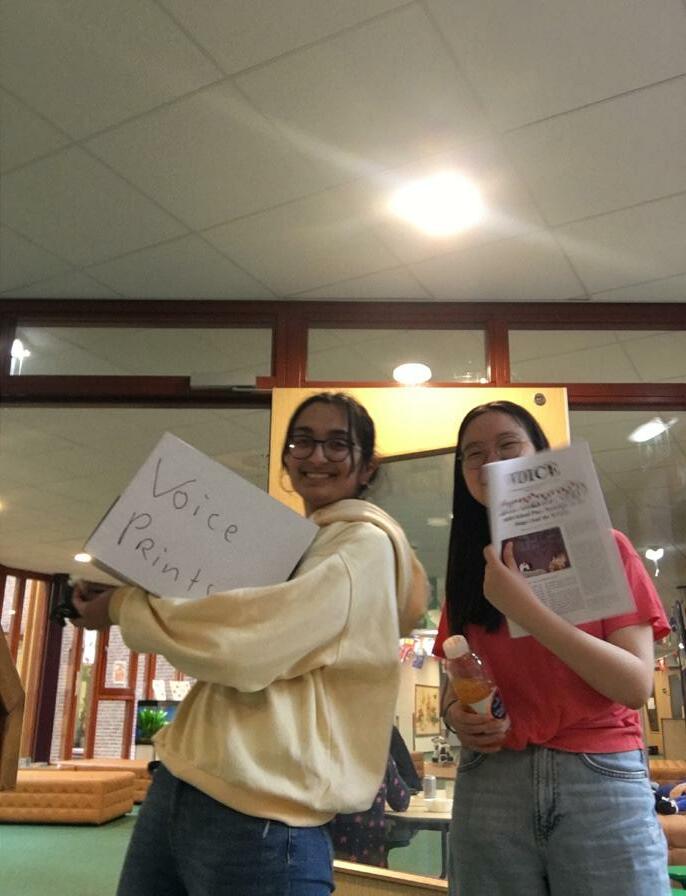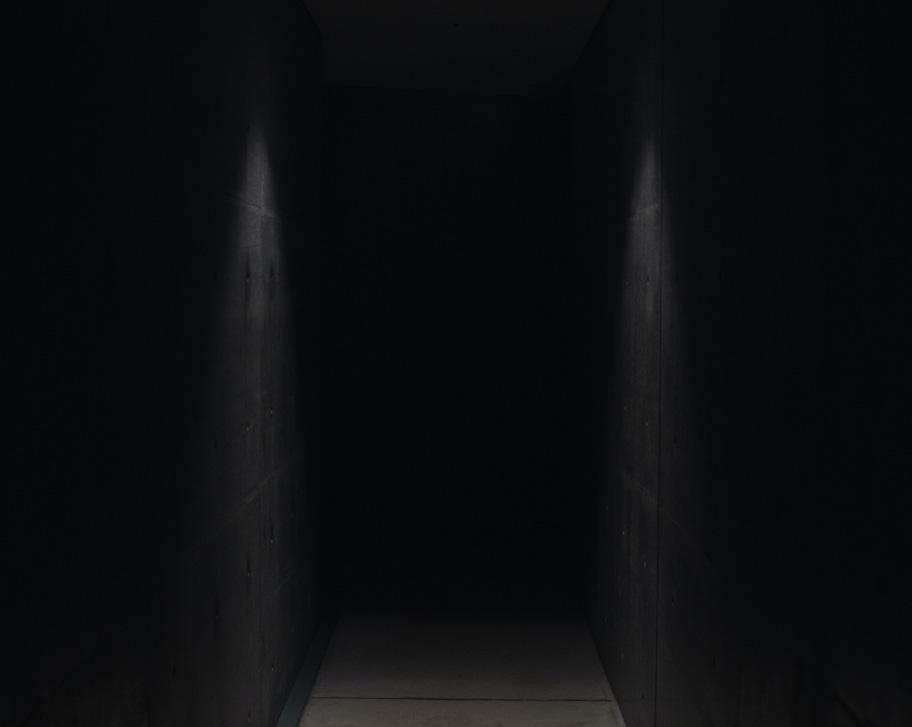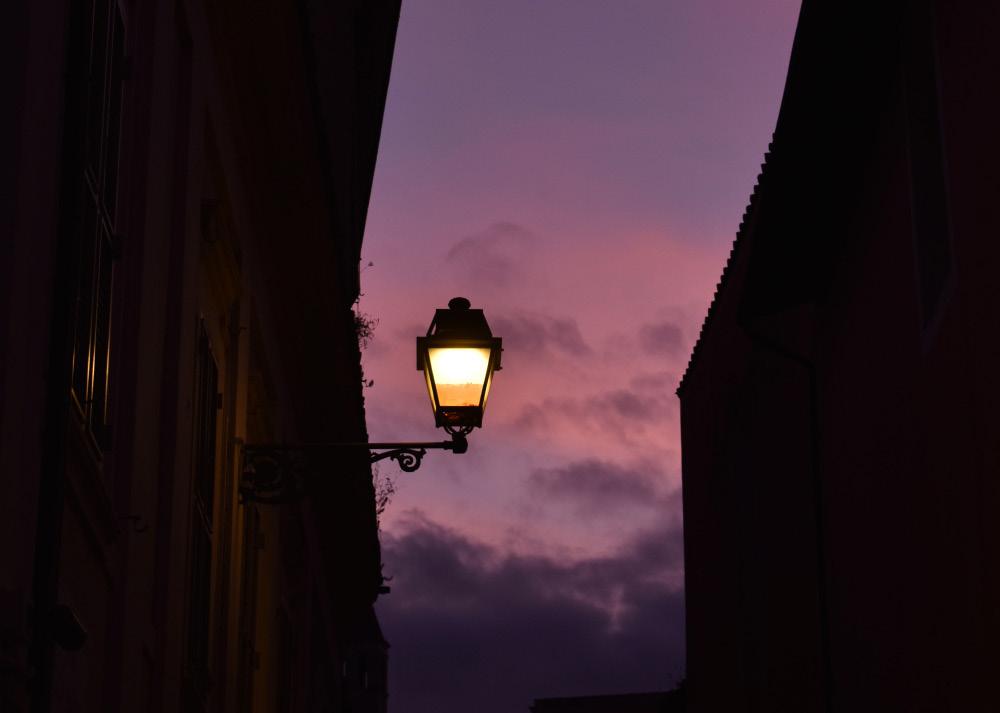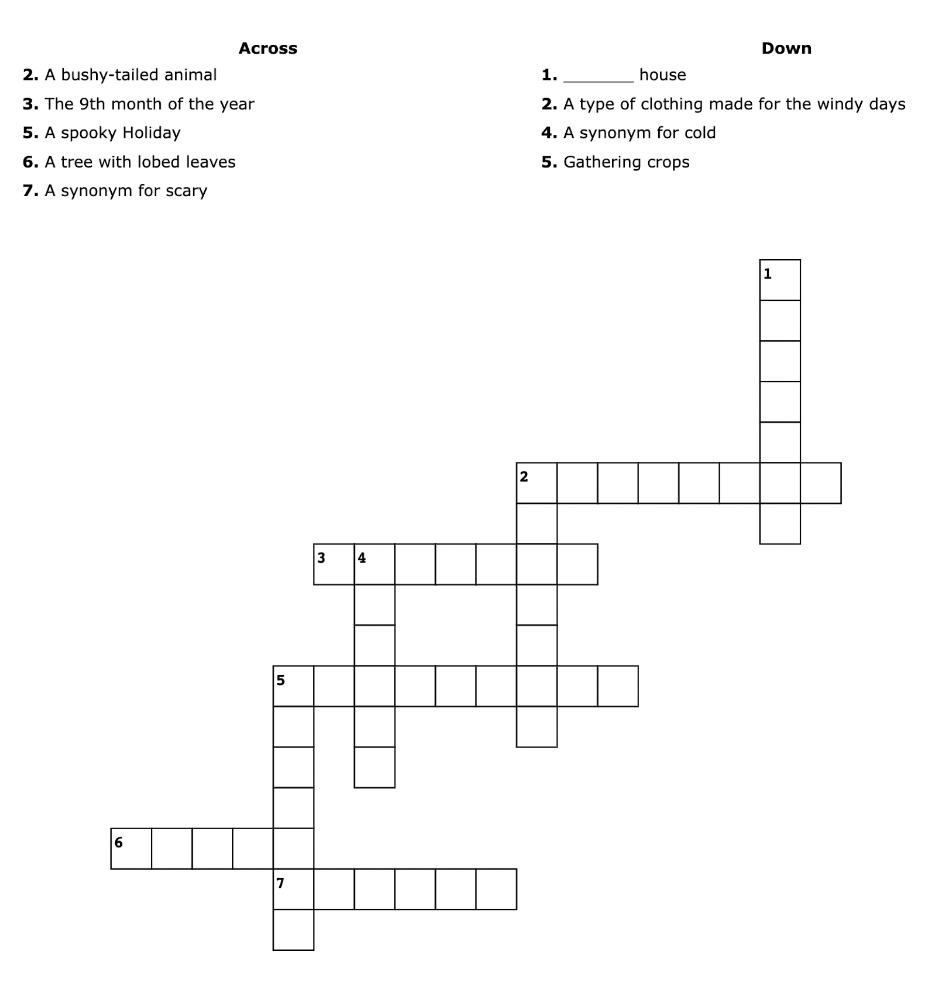VOICE











Taking an art under an ac ademic light commands creativity, technique and—unfortunately— time management. The IB curric ulum for the arts aims to expose students to mediums of expression particular to cultures and genres they would arbitrarily not come across on their own.

ISA’s arts programs con sist of visual arts, music, film, and theater. Although each discipline is independent from the others, what the IB seeks in its arts stu dents appears to overlap quite a bit. “The focus is on managing projects” and “finding a persona and style” according to DP music teacher, Hanrich Claassen.
As a music student myself, I was originally concerned that I wouldn’t have the opportunity to expand my personal style. Howev er, the guidelines and inspirations that are assigned to me turned out to save me from the confines of my personal style. Visual arts stu dent Emma Le Rhun has a similar outlook: “Working with materials is not my thing,” she replied when
This academic year is the first edition I have published as ed itor-in-chief of the Voice. I am extremely honored to take this opportunity and look forward to sharing new events that are going on at ISA.
The purpose of the Voice is to promote and advocate global is sues by writing articles on current events around the world and our community such as supporting sports teams, promoting service clubs, student spotlights, and more.
Photo Taken By Aditi SriramLeft: Aditi Sriram (Editor in Chief) and
Right: Nahye Kim (Senior Editor)
New Year, New Articles; the Voice is Back in Business!
Hello readers! It is my sincere pleasure to welcome you to a brand new issue of the Voice.
For those of you who don’t know, we are a group of writers who proj ect our student voice on school events and share our school spirit!

For the past few weeks, we, as a team, have worked hard on bring ing fun-filled, informative, and in teresting articles to the table.
I have been a part of the Voice team since I was in ninth grade. The school newspaper has become part of me and has been a platform for me to express myself in vari ous different genres, varying from school op articles to book recom mendations. I believe that words have the ability to make a change, a difference, an impact. Words can inspire. There is a new history unfolding through our words.
As editor-in-chief, I hope to create a positive environment for every student and to provide a space for the student body to share their voice.
For this edition, we have a lot of new things in store for you. We are thrilled to share some in sightful news on our new Vice President, a short story contest, crossword puzzles, drawings, and much more!
If you have any questions or if you would like to express your opinions on the Voice; please email thevoice@isa.nl or 23adi tis16@isa.nl. If you would also like to join the club or would like to come in for a trial run, please come to room 243 on Tuesdays during lunch.
We hope you enjoy our first edi tion of the year; Happy Reading!
I am the new Senior Editor for this year, and though I only joined last year, I have continued to work collaboratively and independently at the Voice, and I am looking for ward to what this year’s Voice can accomplish and bring to the ISA community. I hope to take part as much as possible in working as a team at the Voice in creating help ful, communicative, and engaging articles for all to enjoy.
The new school year has begun, and the Voice is back with a new issue full of various articles for ev eryone to enjoy. This new edition explores new beginnings within the school year, along with new changes in the school, such as the student council and new tips in beginning new classes.
In the Voice of the following year, we hope to continue to advo cate various issues globally and spread useful information for all in the ISA community, especially school-related news for all stu dents to learn and read about.
This Voice issue, edition 14.1 in
cludes various types of articles, such as school-based topics of an introduction to this year’s new student council, helpful tips in organizing time and getting work done, student and teacher inter views, as well as other topics, including film and show reviews, to appreciate outside of school. Of course, other than literary ar ticles, there are also collections of poetry, crossword puzzles, and drawings to enjoy for every one. Happy reading!
The Voice is the International School of Amsterdam’s official Upper School student Newspaper. We are grade 6-12 students who meet each week during lunch on Thursdays for planning, publi cation and development of the newspaper– there is no journalism class that supports the project. We commit our time and energy to support our school, our community, and our own growth as thinkers and writers. The Voice is open to all that share a passion for writing and wish to make the ideas of themselves and their communities heard.
Aditi Sriram (Editor in Chief), Nahye Kim (Senior Editor), Despina Griston, Emma Le Rhun, Lily Underwood, Jemma McLean, Bo Davis, Julia Colier, Sam Sorokin, Hanna Kamperman (Layout Editor), Emily van Hollebeke, Pepijn Oosterhuis, Nalu Oguz, Mathilde Manto, Gabriel Lopez De Azua, Lamija Skapur, Laura Torres, Laura Guimaraes, Viola Spada, Sabine Bos, Esme Davis, Kaydence Henry, Noa Van Bokel, Alexandra Martz, Jane Brinke, Marina Lenzi Briski, Tiffany Au, Vrishti Kumar, Aoife Johnson, Apolline Husseini, Camilla Carboni, Elleen Leblanc, Azalée Chail lou, Liza Kroktova, Nikki Lakwijk, Megan Schermers, Mysha Rao, Noah de Weert

asked about her most recent proj ect which deals with designing an outfit from unconventional sup plies, “[but] I like the guidance that the topics give me.”
In music, composing or performing within a genre is not uncreative; it takes a careful bal ance between consideration of what has been done and of what you are capable of doing to fill in the prompt. I have found myself working with 17th-century opera and software that came out in the last decade within the same as signment. It’s daunting, but even tually you get into the rhythm of mixing the unlikeliest of things to create something that is, at the very least, intriguing. It takes the artist’s sacrifice of familiarity and the genre’s sacrifice of technical perfection for every submission, so every submission is a recalibra tion of the art.
As an IB arts teacher, eval uating assessments is tedious. Be cause of the particularity of each student in art, it takes an empa thetic approach to understand the intention behind a submission and the extent to which it was fulfilled. This individuality also happens to be where the intrigue of the job stems: “you can do literally any thing you want,” says Mr.Claas sen. He says that seeing each indi vidual vision come together in one classroom is “the beauty of it.” He finds his job to be to mentor rather than lecture. Maria Volovodova, a film student, is thankful for the similar approach to teaching that Ms.Motre has, since she is given an assignment and told to “just make a movie,” after a solid tech nical and analytical foundation has been established.
At large, the main asset that arts students recognised in the comorbidity of the IB curriculum and creativity is the application of

technical skill and analytical ap preciation; “the curriculum makes me approach theater more analyti cally,” says IB theater student, Lily Underwood. When asked what she would like to pass on to incoming DP theater students, Lily replied: “What do they need to know? It’s theater; I think if it’s something you enjoy, you should be ready to apply yourself.” Maria’s response was similar: “You spend so much time out of class but it won’t be ‘work’ if you love creating.” The most common element of the curriculum that has been deemed improvable is its practicality. Teachers and students alike have expressed desires for more oppor tunities to perform or present their or their students’ work, to share the process and inspiration behind it all.
Taking an art in the IB pro gram is demanding. There may not be a final exam, but the work lev el is dependent on the dedication the student has to their creativity and the assignments in which they can use it. The curriculum, though demanding, does a thorough job of exposing artists to stimuli they may never have otherwise consid ered to align with their personal brand of expression. The arts are more demanding than they appear, and the IB curriculum is a versa tile and challenging exposure to the process of creating.
 Photo by Emily Van Hollebeke
Photo by Emily Van Hollebeke
For this year’s first edition of the Voice, our first student spotlight brings attention to Alexander Jun. For those of you who don’t know, Alexander Jun was honorably elected for the role of Vice Pres ident.
Now starting 11th grade, Alex has been at ISA for 5 years and had already joined the Student Council last year as a grade level representative. This time, he has stepped up alongside Ethan Ahn, School President, in hope of “ac tually getting things done”, which includes but is not limited to “rais ing school spirit with social events, managing library use/better work space, showing support for the sports teams’’ (plus as a wishful bonus “a new microwave!”). Alex also hopes to collaborate with the green team to incorporate sustain able values into events that can be led off of Mr. Watson’s strong history in sustainability, whom he describes as “an open-minded and ambitious person” to aid the
student council in driving change. These connections with faculty was a tool Alex held during elec tions since the process in getting promises accomplished “needs a lot of approval” and can only go so far in student influence. Alex admits there will be challeng es but he “knows what is realis tic’’ and is ready to help organize events. Student input will be col lected in person and via surveys to create ideas suitable for every one because “the role of Student Council is to form the change as something to be welcomed rather than closed off.” As a final word of advice for all students starting the 2022 school year, the vice president encourages “not to be embarrassed or shy to reach out to counselors, teachers, friends and student council about concerns in work, the school itself, school spirit or personal issues. Anything. Anything that bothers you will al ways have some solution, so enjoy learning with the support system ISA has to offer”.

At the beginning of the year it may be hard to keep on track and or ganize, which is why you may be thinking, “I have too much home work!”, or “How am I going to study for all of this?”. Well, this article is going to be full of tricks and tips for the upcoming year.

Having an environment without distractions allows you to be more concentrated (National Geographic). Once you have that environment, you will be able to focus on your homework. This technique gives you the opportu nity to spend your time in a good manner and not get distracted by the objects and sounds around you. As National Geographic states, “Exposure to loud noise can also cause high blood pressure, heart disease, sleep disturbances, and stress. These health problems can affect all age groups, espe cially children”(Society). When proceeding with this tip, you may find that you can remember facts more easily and pay attention bet ter. To create a quiet environment, a few tips from Zerocater.com is to have “carpets, rugs, tapes tries, wall hangings or canvas art in your study room.” This allows sound to absorb noise and convert its energy to heat, allowing you to concentrate and finish your home work in time to enjoy sports, art, or social activities.
“Having a to-do list makes it easier to organize everything that you want to accomplish in the day so that you can start fresh the
next.” (Team). This also allows you to divide your time among different tasks. Having a to-do list divises your time into more at tainable goals. This will affect the way you organize your homework and let you know when to study for one category before following it with the next. Having a feeling of accomplishment when finish ing your goals also unconsciously makes you write more goals and be encouraged to finish them. “Phys ically crossing items off a list can also increase motivation.” (Team). If you don’t have a to-do list, you have a higher percentage to forget some tasks. When this occurs, you may have to rush to finish it when remembering it, or you don’t do it completely. With a to-do list, you can mark the deadline and the de tails to never have to be stressed if you forgot something.
Prolonged periods of con centration can be detrimental to
productivity without breaks. To avoid this, one should take a break in between studying, allowing one to come back with a more ready brain than before. If you contin ue, it is most likely that you won’t memorize the work or understand it properly because of the lack of attentiveness.
If you’re tired you most likely won’t want to do work which will affect how you study or do your homework. The more tired you are the more you will think about other things and want to relax. If you’re energetic you most likely will want to study and do your homework so you can do other things.
If you have your phone next you you’ll probably want to open it especially if it has ring tone on. Many people experience that it is especially hard when their
phone is next to them and then they get easily distracted by their friend’s message. This then leads to them being carried away being “mind controlled” by technology instead of focusing on school. Any other distractions such as peo ple talking to you or eating also won’t help. All of these also will permit you to not be fully focused on doing your homework and will more than likely stop you from doing other things and get carried away. Multi tasking, for example, calling someone or activities also isn’t good since it may distract you, giving the possibility that you won’t study/do your homework well or it at all.
To force yourself to achieve a task, you can message your family/friend and both tell each other what you would like to achieve by the end of the day. Every hour or so you can check on each other and push each other to reach your goals. For example, if your goal/homework is to read at least 20 pages a day, then you tell your family/friend your goal. In this technique, they will check on you every hour and if you haven’t read, then your friends will start pushing you to read. This solution helps to feel more obligated to do it. It also may give you the chance to make you feel better when fin ishing the goal.

Another way is to think about consequences. This push es yourself to be “afraid” of what would happen if you didn’t study. For example if you don’t study then you won’t get a good grade. For homework, you could have a punishment or have a feeling of guilt without completing it, with out exercise, you might not under stand the next lessons, etc...
Taking tests can cause a lot of stress and anxiety to many people. It is al ways good to be on your toes before a test, but sometimes we can be a lit tle too stressed before a test. Staying calm with no distractions is the best way to head toward an exam. But phones and the overall fear of failing can add a lot of unneeded and un necessary stress to your life. Anyone can get stressed out from 1st graders to college students. That is why it is important to practice healthy test strategies so we can all be calm and collected before a test. Here are some strategies to remove the test stress away.
1. Study well before a test: Whether we like it or not, studying is a vital part of preparing for a test. A lot of times we like to gaslight our selves into thinking we know the material for the test and procrastinate until the night before. This can cause a lot of stress and take a toll on your cleared mind before a test. Would you rather be sitting in a test knowing that you’re barely studying and re gretting leaving it for last night when you had a whole 2 weeks? Or would you rather sit in a test knowing that you studied well enough for you to try your best? I think you know the answer so why not study yourself? To not procrastinate here is an easy way to get up and start working. Set your alarm clock for 5 minutes and start doing your work, after that you can decide whether or not you want to keep working. By doing this you get into the flow of your work and you want to get it done so it helps to get on a roll.
2. Get a good night’s sleep: This is an average human necessity
but we tend to forget how important sleep really is. When you start middle school you should at least be getting 8-10 hours of sleep a night. Many students of middle school age start to get messed up with sleep schedules. This causes fatigue, mood swings, memory problems, and lack of ener gy. Having memory problems can af fect your studying. If you just studied for 4 hours prior to a test but it’s 2
in your overall energy. Sometimes people do end up eating unhealthy and unreasonable breakfast instead of none. Eating sweets, candy, or too big of meals can make you feel full and slumpy. This is not beneficial to the fresh feeling you want during an exam. Breakfast is called the ‘most important meal of the day and for val id reasons. It supplies a full stomach through the beginning of your day so
Photo by Davies Designs Studio on Unsplash
a.m., by the time you wake up your work will all be scattered around your brain. There are even some potential health effects connected to lack of sleep like high blood pressure, heart attack, diabetes, or stroke. On top of that, you’ll be tired and have a lack of energy. Getting a good night’s sleep can help your mental and physical performance throughout the day.
3. Eating a good breakfast: Food is fuel for our minds and body to work well and efficiently through out the day. It surprises me how many people skip breakfast at my school. So having a healthy balanced breakfast could make a difference
you don’t walk around with an empty angry stomach. It also supplies glu cose to your body to raise your ener gy levels to start your day on a good note.
4. Have positive thoughts throughout the day: It may seem simple but whatever en ergy you put out into the world comes right back to you. Positive self-talk can Help withhold your emotions in stressful situations. It is so easy to talk negatively about yourself in sit uations where it causes a lot of stress and builds up concern. But you must stay positive and talk in an optimistic way about yourself and the situation.
Of course, you can understand that the test or situation that’s happening is hard but the way you approach it mentally is what it’s really about. Speaking negatively through your day makes a dark cloud of pessimis tic thoughts. Saying positive affirma tions can help manifest a good out come. Even saying positive things on a day-to-day basis can help with your self-esteem.
Your phone, computer, and television have many different fun entertaining things to watch and scroll through. After taking it off it leaves us strained and thinking about being on our phones. Being in class only makes me think about the funny memes and videos I was watching prior to the class. But especially during the test, I think about my phone and all the fun ny videos I watched earlier. Being the first generation with mobile devices and an extreme variety of electronic apps and channels, it’s hard to give up such an everyday item. It becomes a distraction and we constantly think about our online activities, we even hang out with our friends on our phones. But it is advised to not go on your phone very little before the test and if you’re disciplined enough, only for 1 and ½ before a test.
I know we all always see this on those random posters about how to stay distressed and those informative videos on how to calm down but no one really does it. But it helps your well-being with keeping a clear mind. Deep breaths help air flow through the body. This practice can also help calm nerves, and reduce stress and anxiety. It can help improve your at tention span which can majorly help during tests where you need sharp focus. Taking heavy deep breaths can lead to feeling fresh and relaxed.
You know that feeling when every one is flipping to the last page or even packing up during a test and you’re only halfway through. You feel rushed and behind compared to your other classmates leaving you feeling lower than others. But it’s fine, take your time. Everyone has their strengths, weaknesses, and time bounds for different subjects. Look ing at other people speeding through their tests makes anyone feel anxious to finish faster. But this can lead to you putting in weaker answers and showing the lack of effort you put in your test, which you don’t want. So just focus on yourself and don’t wor ry about others. Because everyone has their own way of taking their test, yours just works for you.
8. Read questions carefully:
Whenever people open a new app they tend to skip the instructions. Or when a videogame gives you import ant information we tend to skip that also. Even the terms and conditions on new updates. All of these ‘boring reads’ can help you out in the long run. During tests, we tend to speed through and not read questions care fully. A lot of times when we don’t carefully read questions we get them wrong, and over a simple mistake. On tests, as you get older then questions need focused comprehension to un derstand the material. So it’s an im portant learning skill to slow down and read questions thoroughly to get a clear understanding of the material.
9. Know the time and place of the exam:
We all have those moments where we are going to someone with a planned time, but we don’t check how far and long it takes to get there. So when we do 10 minutes before we leave we are shocked at the distance and time and start to freak out and regret the de cision of not checking at least a day
prior. Same goes for test classrooms. Knowing the classroom can help change your mindset for your envi ronment and your mental well-being. Knowing the time can help you men tall prepare and relax throughout the time span of when you wake up to the moment your class starts. We all have different moods during the day so knowing where your class is and time can help you mentally prepare and just another thing to check off your list.
10. Make sure you know the sub ject you are testing on:
We all have different feelings in dif ferent classes. And our teachers have very different and subjective ways of test layouts. Make sure you are aware of your test layout and how it’s going to be. A lot of times teachers put on a cross what your test is going to be about. Knowing what the test is about and the ‘culture’ of your teacher’s test. You can take an educated guess on how the format of your test will be and mentally prepare for something along the lines of said class.
Hopefully, this advice will help you with upcoming tests. Understanding how your body performs under dif ferent circumstances is good to help prepare you for tests. I hope you are more confident with your mindset on tests now and can go into a test en ergized, educated, and calm with no distractions.
Autumn is making a comeback, and while it does mean Summer is over, along with its warm, sun ny weather and days on the beach, it also means an end to the heat waves, and the start of the rainy season (finally!). While most of the dutch population is probably more than ready for it to be sun ny again, I would say most people can agree that sitting inside your warm house while it is raining out side and being able to open your window to smell it the next morn ing is one of the best feelings ever. But why do we love it so much? What’s the appeal of rain, and why does it smell so good? I’ve done some exploring into these ques tions, so keep reading to see what I found.

First of all though, a little disclaimer. Knowing the name of the smell of rain and where it comes from could make the nos talgia of it and the memories that it pulls up a bit less strong. This might sound strange, but there was a study done at the Universi ty of Stockholm. There were three groups of people, each present ed with a different situation. One group was just exposed to a scent, the second group to the name of the scent without the actual smell, and the third group with both. The first group had a much stronger emotional response than the other two. So, knowing what the smell is could interfere with how your brain calls up memories triggered by it. So if you want to know, do
so at your own risk. (It’s really not that big of a deal – rain still smells great to me – but I just wanted to be a little dramatic, you know?) What many of you probably al ready know is that that after-therain smell is called petrichor. If you didn’t know that, well, you know now! It was given the name by two Australian scientists who discovered the origins of petrichor back in the 60s. It is derived from two Greek words; petros, mean ing ‘stone,’ and ichor, the word for ‘the fluid that flows in the veins of the gods’ (dramatic, I know). The smell is produced by bacteria. The bacteria are a specific type of bac teria called actinobacteria which break down dead things. They pro duce a lot of chemicals through this
process, and one of them is called geosmin, a type of alcohol that hu mans are really sensitive to - we can smell it in really small quanti ties, down to a couple of parts per trillion air molecules. The moist environment created by rain ac tivates these bacteria’s processes. The reason we can smell this so well after it has rained is that when raindrops hit the earth, they splat ter and trap little particles in air bubbles, and you guessed it, geos min is among those little particles. This way they can be carried in the wind, allowing us to smell them. If it’s raining hard, the smell can be strong enough/the wind can blow far enough that the smell can be carried farther away, explaining why you can oftentimes smell a shower coming.
Why we like the smell of rain, in a psychological sense, was harder to find information on, which is why this part will be a bit more hypothetical. The rain itself is nice and soothing for a multitude of reasons. First of all, it’s refreshing and clears the air of pollutants, and makes it smell good. Secondly, when it’s rain ing the air pressure is lower and there’s a lot of water vapor in the air, which together lower the over all oxygen levels. This makes your brain more tired and thus sleepi er. Third of all, lightning and the friction between the rain and the air cause there to be a lot of neg ative ions, which are overall good for your nervous, respiratory, and cardiovascular systems and relax you. Another thing is that when it rains or the weather is stormy, it is usually darker as well. This causes your body to produce more mela tonin - the hormone that makes you feel tired and sleepy. Finally, the sound of rain is rhythmic and quiet, and it’s also white noise which masks other loud sounds that stimulate your brain. There

are so many things that make rain so relaxing that I think the smell of rain is also relaxing by associ ation because it brings back those memories of soothing times. That’s just what I think, and there’s probably a much deeper reason that nobody knows about yet, because why else would po ets and perfume companies and such be so obsessed with it?
I think that’s it for this rain-centric research for now, so I say go out and enjoy that rain –that petrichor – and hope that it at least does not pour down on you on the way to school tomorrow. Happy fall!
 Written by: Sabine Bos and Lamija Skapur
Written by: Sabine Bos and Lamija Skapur
“No one puts their children in a boat unless the water is safer than the land.” - Warsan Shire. Ev ery day, ordinary people across the world leave their homes in pursuit of a better life. Not only is it a very tough choice to make, but it also causes a number of issues in other places. People are unable to exercise all of their human rights since they are frequently referred to as “asylum-seekers’’ rather than being legally recognized as refu gees. Similar to other nations, the Netherlands finds it difficult to as sist asylum seekers, which makes it much more difficult for them to maintain respectable lives.
To define the term ‘Asy lum-seeker’, this title is given to those who have fled their country in search of a greater sense of safe ty and security in another; seeking asylum away from the possible danger or violent chaos in which they departed.
Although it is challenging for The Netherlands to aid asylum seekers, there are organizations in a place whose purpose is to sup port and allow them to more easily establish themselves in this new country. According to a web page by XPAT.NL, The Netherlands provides housing in emergency shelters to those who register with the ‘COA’ or in other words ‘ the Central Organisation for the Re ception of Asylum Seekers. These shelters occasionally take place within sports centers, camps, con verted buildings, etc, and though they only provide very basic ac commodation, at least they have somewhere to go. The shelters
also provide three meals a day, clothing plus basic healthcare. However, their stay here is only temporary. Four days is all that’s allocated, before preparing to gain status as a refugee. Subse quent to settling in The Nether lands and residing in a refugee center, only then can they enter the ‘official refugee procedure’, which provides a small allowance of 13 euros a week (depending on whether they receive meals), and a bank account where this money will be held. After this, the pro cess is long and slow in redevel oping their lives to a state of nor mality.
In conclusion, for coun tries all around the world, manag ing asylum seekers and refugees is complicated and troublesome.
In comparison to other countries, The Netherlands is rather gen erous in the supply of resources available, that help expedite the development in creating a new life for these people. Though on the other hand, from the perspec tive of those seeking asylum, this process will always be too long, too slow, and too hopeless, yet the people; are so hopeful. Hopeful that one day no one will have to go through such trouble, just to escape their own home.
 Written by: Gabriel Lopez de Azua
Written by: Gabriel Lopez de Azua
As of very recently, scien tists have unearthed more bones that were shockingly discovered to have been the missing body of a mysterious skull found in 2012! These bones belonged to a power ful creature that stalked the earth approximately 85 million years ago in the Late Cretaceous period, that’s 20 million years BEFORE the infamous tyrant lizard king. This ancient carnivorous beast is known by one name: Meraxes Gigas.
Meraxes’ name is derived from the dragon of the same title from Game Of Thrones, and a monster such as this one is well worthy of such a name. With its skull alone measuring in at a whopping 1.27 meters (and a total length of 11 meters with a weight of 4 tons), this beast was larger than a Tyrannosaurus, albeit only half as heavy.
However, one interesting parallel between the two is that they both have short, seemingly useless arms and gigantic heads. Scientists have discovered that short arms and bigger heads were key to these therapod’s survival, contrary to the popular belief they were useless and a trait exclu sive to Tyrannosauridae. Many theropods had short arms. A good example was the Abelisauridae (which includes the Abelisaurus and Carnotaurus). These creatures were known for their hilariously short arms and yet they were a diverse and successful group. Many believe these short arms were created for helping attract/ hold mates and get up from prone positions but were short enough as to not be easy targets and be
bitten off during feeding frenzies. Meraxes likely ate cera topsians and smaller or younger sauropods which lived at the time and lived in tropical Patagonia, which was somewhat colder at the time due to its proximity to the Antarctic Peninsula. Due to its climate, it was probably an ambush hunter that would hide in surrounding areas and rely on short and powerful bursts of speed to take down prey. So it would fill a pretty similar niche to the T. Rex’s smaller cousin: Daspletosaurus.
Meraxes was one of the largest carnivores in its ecosystem and held a strong grip over the food chain. It was almost a kind of replacement for the previous superpredators of Argentina such as the Giganotosaurus. Gigano tosaurus was 13 meters long and weighed 15 tons. It was 3 meters longer and 11 tons heavier than
Meraxes and hunted large sau ropods. Meraxes was far lighter than most therapods its size. Despite this, it was still a power ful beast and would go on to be a terror to the creatures in Argenti na for the next 10 million years.
Even though Meraxes held a solid part of the food chain, it too was sadly out-competed and eventually replaced by more modern therapods such as the Carnotaurus, which were smaller and faster and could adapt more readily to changes in the ecosys tem. And since Meraxes was the only dinosaur in its genus, it had no other relatives to continue its legacy.
Despite this, Meraxes Gi gas is a formidable dinosaur that is a strong contender for the king of the dinosaurs. So Tyrannosau rus Rex better look out, because Meraxes Gigas is coming for the crown!
*Disclaimer: This article contains spoilers for those who have not watched the entire series
In Season 1, Episode 1, Harvey lies to a client saying that he al ready received a wire transfer for the money his client was going to pay him before a deal was signed. He uses this bluff to ensure that his client doesn’t pull out of a deal. When his client figures this out, he fires the firm and while Harvey initially loses his promotion, he gets it back by the end of the epi sode with no further ramifications.
In reality, this client would most likely sue the firm and not just fire it and Harvey would have been fired or brought before a judge.
Starting with the most obvious un realistic moment, is the length of time that Mike Ross was able to keep his secret. Only discovered in season 5, he went undetected by opposing lawyers and judges for an inordinate amount of time. Throughout the series, it is seen that Mike and Harvey research other lawyers, it seems improba ble that they too were not looked into by their opposition. If this is the case, it seems unlikely that he was not discovered earlier.
Forget number 10 of not being dis covered earlier, how was he even hired at all? Pearson Hardman was a prestigious, large law firm with multiple floors, an IT department, and many interns. It is highly un likely that they did not have a hu man resources department. If that
is the case, Harvey would not be able to simply hire Mike because he wanted to, no matter what Har vey’s status in the company was. With that in mind, HR would have flagged Mike’s lack of degree be fore he could have even stepped foot into Pearson Hardman.
In season 1, episode 11, Harvey Specter is deposed by a lawyer who was attempting to expose Harvey’s former mentor. During the deposition, she claims that “in two years [he] handled 18362 cas es, 36 cases a day” with 147 going to trial. In reality, these numbers are beyond ridiculous. Not only would this be impossible in a firm that had unlimited resources, but as a defense attorney with even fewer resources this notion glam orizes being a lawyer and creates unrealistic expectations.

After getting back on its feet fol lowing Mike’s activities, the firm finds itself representing two sides of an agreement. This ultimately leads to Thomas Kessler finding out privileged information about the other companies strategies and pulling out of the deal. While this makes for entertaining television, it is doubtful that both parties would have agreed to be repre sented by the same firm because of the potential for what occurred — information being passed that should have remained confiden tial.
Law is extremely complex, which is why lawyers often specialize and become knowledgeable in a specific area. This is why it seems unlikely that Harvey and Mike
handle cases in multiple areas of the law.
Maybe once upon a time, lawyers researched laws and legislation by combing through books. However, with access to computers and the internet, this is an extremely in efficient way to research and pre pare for cases. While it may look good on TV for Rachel and Mike to bond over books, it is not the most realistic scene.

With the number of times that the firm changes names, loses em ployees, or loses clients, it seems unlikely that it would be able to stay in business. No matter how prestigious the firm may have been initially, the fact is that Mike was defrauded, Jessica exposed herself as having known of the situation and Robert Zane is later also ex posed for revealing privileged in formation to an outsider. On top of that, Harvey’s methods are called into question a few times, along with his history at the DA office. With so many managing or name partners being exposed for fraudu lent activity, it seems unlikely the firm would remain afloat.
Season 5, episode 16. As the news of Mike’s fraud and conviction is circulated, every. Single. Person. Leaves Pearson Specter Litt. And yes, while people leaving is a nat ural course of action as a result of a prestigious law firm’s name be ing tarnished, everyone all at once is highly unrealistic. As a large law firm, most people would not be able to find a job at another law firm at such short notice and while Jessica waives the non-competes, there is usually a period in which
people must give notice before resigning.
Despite all of the tension and worry about Mike being exposed as a Fraud, he is somehow able to go to prison at the end of season 5 and be back working in a legal capacity by season 6. In reality, one found to have been working as a fraud for any period of time would not be allowed back into
the legal field in any capacity, let alone as a lawyer. He doesn’t even go to law school to become a lawyer after coming out of pris on! Talk about unrealistic.
And there you have it. The top ten moments that every die-hard Suits fan chooses to ignore be cause this show is just too good. Also, let’s face it, what show doesn’t have holes or unrealistic moments?
Loosely adapted from Roadside Picnic, a Sci-Fi novel by Arkady and Boris Strugatsky, An drei Tarkovsky’s Stalker is a deep and enthralling film that delves into the complexities of human de sire. It is in my opinion, and that of many other, more qualified people, a masterpiece. The British Film Institute ranked it as the 29th best movie of all time–tied with Sho ah, and just ahead of The Godfa ther Part II–and it sits comfortably on a 100% score on RT, and an 8.1 on IMDB. It is deep, gripping, and visually stunning, in ways in which few films can compare. It needs this because, at a runtime of 2 hours and 43 minutes, anything short of perfection would render the film a boring slog for the av erage viewer. Despite this hurdle, I would argue that Stalker is well worth watching for anyone willing to invest the time and attention it requires.
Whilst it draws the over arching plot and concept from the Strugatsky brothers’ novel, Stalker is closer to a loose hom age than it is to a faithful adap tation of its source material. The plot of the film centers around the “Zone,” a mysterious sealed-off area in which an extraterrestri al object allegedly landed many years ago. Contained within this zone is the “Room,” which is said to grant the innermost wish of whoever enters. To get to the room one needs a guide, a titular “Stalker,” to navigate through the zone. The three main characters (all of whom are played incredi bly well), the Stalker, the Writer, and the Professor, enter the zone in search of this room, each with their desires. The Writer claims
he wants to find inspiration, the Professor claims he wants a No bel Prize, and the Stalker claims he just wants to make people’s dreams come true. After a long journey, they eventually reach the room. It is here that the Professor reveals a bomb he has been car rying with him, which he intends to use to destroy the room to pre vent the wrong people from using it. In the fierce debate that ensues, the true nature of the room is re vealed. Instead of granting what one consciously wishes, the room delves into the subconscious and digs out the truest desire, often to the detriment of the person. The climax of the film is an incredible exploration of the human psyche that leaves a profound impression on the viewer. Whilst it appears quite simple and, at times, boring, the plot’s philosophical questions are incredibly captivating.
The core idea explored in Stalker is that of the nature of hu

man desire. Whilst we as human beings often think we know ex actly what we want, it often is the case that we do not know our true desires. These two desires often come into conflict, which leaves the question of what desire is. As the Writer states: “My conscience wants vegetarianism to win over the world. And my subconscious is yearning for a piece of juicy meat. But what do I want?” Throughout the film, questions such as these are raised, pondering the nature of humanity. Much of the film’s runtime is spent on the dialogue between the three travelers. They debate a variety of subjects, from the nature of creativity to that of truth, each being fascinating. The dialogue is one of the greatest parts of Stalker and is one of how it is elevated from a good film to a great film.
Despite this, an almost equally important aspect of the film is silence. Stalker is a very
quiet film. The first 10 minutes of the film are entirely devoid of any dialogue. This trend continues throughout the film, with scenes of heavy dialogue being separat ed by extended landscape shots supplemented only by the incred ible, yet eerie score. This silence in combination with the lingering shots–the average shot time being over a minute long–leads to the film moving incredibly slow, am plifying the already long runtime to feel even longer. Some might argue that this is a weakness of the film, but I would argue quite the opposite. Because it is so slow and long, it allows the viewer to dwell on everything being said. This is desperately needed, because most of its depth is hidden behind a thick layer of complicated and

confusing dialogue, meaning it would go unnoticed if not given enough time to process.
One final thing I would like to draw attention to is the film’s incredible visuals. For a movie made with a tiny budget–compared to those of today–Stalk er achieves a lot with what it has. I already mentioned the shot length, but even more important than that is what is shown in those shots.
Slow pans over eerily empty land scapes and scenes that linger just a bit longer than you’d think they should all contribute to the oth erworldly atmosphere the film evokes. I am drawn in particular to a dreamlike sequence around halfway through the movie, which features a scene with just a cam era moving up a tiny stream, with
many discarded objects visible in the water. It is captivating, and just one example of many that demonstrate Tarkovsky’s cine matic genius. Stalker is not only a thought-provoking film but also a visually stunning one, proving it self as a film worthy of the highest praise.
Despite appearing daunt ing and dense at first glance, An drei Tarkovsky’s Stalker is a mas terwork in cinematic storytelling. It’s not for everyone, but for those willing to give it a shot it’d prob ably be a worthwhile journey. An interesting concept, incredible score, profound dialogue, excep tional acting, and stunning cine matography all combine to make Stalker one of those rare films which can truly be considered un forgettable. It is one of my favor ite films of all time and is worth watching if you are willing to jump the hurdle of its difficult ac cessibility.


This year, We want to hear your Voice!
We have placed some prompts below. Write a short creative writing piece in relation to the prompt and email it to thevoice@isa.nl or 23aditis16@isa.nl
Three winners will be included in the next edition of the Voice!
1. A dialogue between two people in a public space. There’s something that they can’t speak about, but you can’t reference it by name.
2. Something’s happening in the street below. Someone watches from a telescope.
3. A character gets transported to another decade. They get back and don’t remember if it was a dream.

It’s me again
How’s it going?
Remember… The times
The times when it’s the early morning
And it’s very dark and silent outside And we are in a cold car
In our warm coats and beanies and winter shoes
Outside is very frosty We come for vacation
To a sweet place in the world We come in a cold car
It is very silent outside
Only the opening of the car door can be heard In the middle of a frosty world So hazy
The second we step outside Feeling the frosty world
Our breaths become jokes of smoke Our noses and cheeks become hot pink Our fingertips turn into ice In the frosty world So silent
Only hearing the car door slowly open We amaze ourselves
With how silent the world can be In the early dark morning In the frosty world
The crumbling boundaries of the world, dissipate unfounded by my knowing Fines mundi putri, dissipa cum sciendo
Los confines del mundo se están desmoronando, desperdicio cuando sabes
Die eindes van die wêreld verkrummel, mors as jy weet Capăturile lumii se prăbușesc, risipă dacă știi
Ngwugwu uwa na-ada, n’efu ma ọ buru na i mara Tuitidh deireadh an t-saoghail, saor ma tha fios agad
La fin du monde tombera, libre si tu sais D’Enn vun der Welt wäert falen, fräi wann Dir wësst اگر بدانی پایان دنیا خواهد افتاد، رایگان
Uma wazi ukuthi ukuphela kwezwe kuzowa, mahhala
Inā ʻike ʻoe e hāʻule ana ka hopena o ka honua, no ka manuahi Nếu bạn biết ngày tận thế sắp sụp đổ, nó hoàn toàn miễn phí Agar siz apokalipsis kelishini bilsangiz, bu bepul
As jo witte dat de apokalyps komt, is it fergees আপনি যদি জানেন যে অ্যাপোক্যালিপস আসছে, এটি বিনামূল্যে
Se você sabe que o Apocalipse está chegando, é grátis Ha tudod, hogy közeleg az Apokalipszis, akkor ingyenes
Ако знате да долази Апокалипса, то је бесплатно
Yen sampeyan ngerti Apocalypse bakal teka, iku gratis Als je weet dat de Apocalyps eraan komt, is het gratis
If you know the apocalypse is coming, you’re free
A woman watches the window frame eat up the scenery at 40 miles an hour. Right next to a girl, curled into another like a comma. Her eyes reset. Again. Fast, like she thinks she’ll see it again. Sad, like she knows she’ll see it again. The bus is dense, with too many consonants.
Day settles right on top of rain on top of a bus on top of 8 AM leaves, pressed to the city-like skin.
A man—we’ll call him March—steps on in. Smile like you wouldn’t believe it. Fingers like twigs. Eyes soft as the feeling of feeling. The bus moves. The man speaks—the engine eats it right up. Morning runs rivers into his palms.
The windows take up distance like it’s never tried before. Don’t leave a bit; trees, concrete, sunset & all its blindspots.
A picture: the sun, rising, only to fall/the bus, going, only to come back to the same sidewalk (& its Autumn bruises)
Whispers of words, hushed by wind, Tellings of tales, silenced by fires
Sounds of confusion mastered by me
The whimpers of my work
I hear all
But life as creation, is bound by the rules, Led to desemation, Intent of fools.
But fools by decree, By me,
The word of all, the key to fall
Because what am I
Because what are They
If not defined by the silence ringing
By the sounds all titling
By the ways world-shaking
Murmurs of melodies, calmed by sea Breaths of chaos dominated by creation Shadows of commotion eclipsed by nature
Creations
See?
Or Me

 Written by: Bo Davis
Written by: Bo Davis

